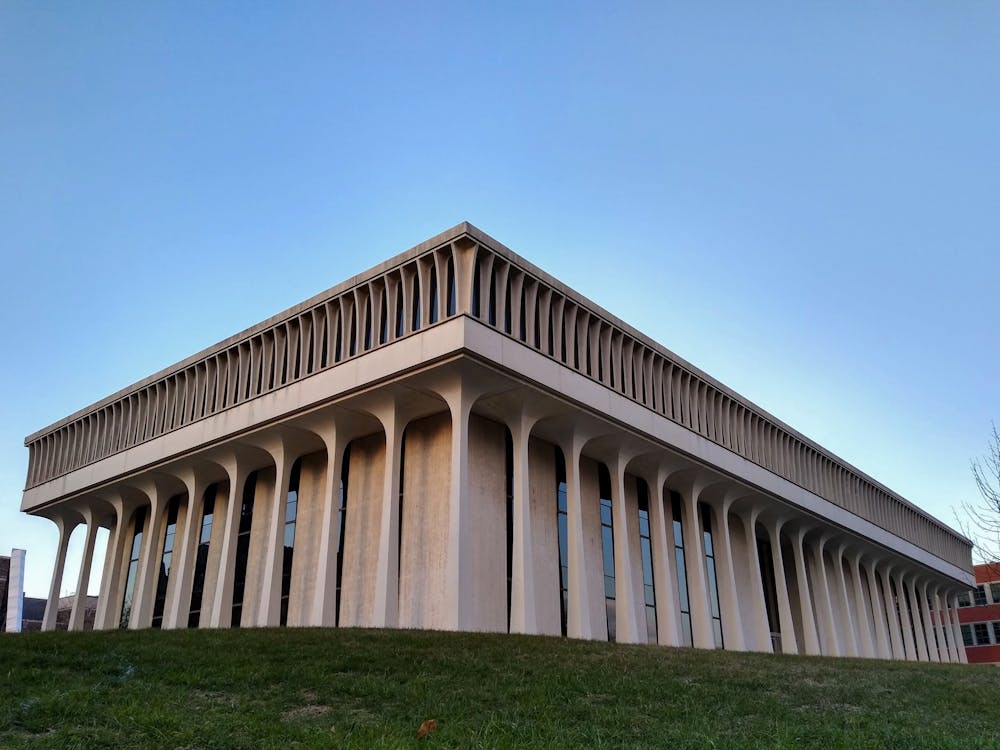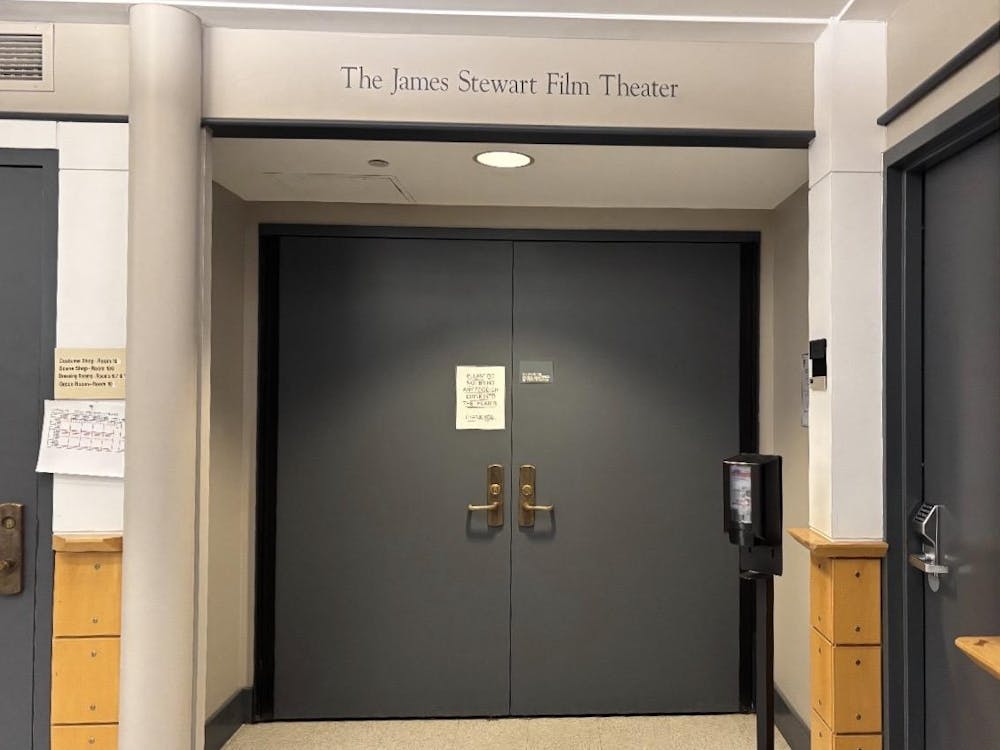Senior research scholar Andrew S. Reynolds in the politics department is pursuing research of LGBTQ+ representation in the political sphere through Queer Politics at Princeton (QP@P). Since its founding in 2020, the organization has become a hub for queer research and scholarship that Reynolds says “[has] not [been] seen at any other institution.”
“QP@P is really supposed to shine a light on the reality of this world socially and politically,” Reynolds said in an interview with The Daily Princetonian. “This is the only queer politics center in the world that is focused on this [LGBTQ+ visibility].”
Through the organization’s creation, Reynolds said he aimed to expand the work he was doing prior to coming to Princeton at the University of North Carolina at Chapel Hill, where he previously conducted research.
“One of the aspirations that I discussed with SPIA [the School of Public and International Affairs], Politics and the University more generally, was to try and build [the previous work] into a bigger shop here at Princeton,” he said. “I wanted to build it out of Princeton because it seemed to be the best place to use as a foundation. And there’s a lot of enthusiasm to do it.”
According to SPIA concentrator and Research Assistant Paul-Louis Biondi ’24, QP@P’s work is especially important in today’s political climate.
“What we’re seeing, especially in the U.S. right now, is a big, big reaction against queerness especially in youth and education, and so I think queer elected officials are a big hope and a big need to be seen and talked about more,” they said.
Since the start of the COVID-19 pandemic, QP@P has hosted a webinar series of panel discussions with scholars in queer research, including “Bi/Pan Women Parliamentarians” and “Queer and Trans Muslims in the US.” The webinars had regular attendance, with almost 800 people registered in total coming from all around the world.
“Every week, I had somebody in Namibia, or Germany, or Russia, or Jamaica, or Argentina,” Reynolds explained. “It was very internationalized. And it allowed our speakers as well to come from all over the place.”

Though the webinars have not been held as frequently after the first season, Reynolds said he hopes to build up a program for the series next year. QP@P also plans to launch a film directors series next year by inviting directors and screenwriters of queer storytelling for screenings at the Princeton Garden Theatre. According to Reynolds, Dustin Lance Black, who wrote the Oscar-winning movie “Milk,” and David France, best known for his writings and documentaries on LGBTQ+ issues, are coming to Princeton during the 2022–23 academic year.
“We’re gonna start this series just talking to storytellers and understanding how their storytelling about queer issues and lives actually affects people’s views and policy as well,” Reynolds said.
With the start of Princeton’s Gender and Sexuality Resource Center’s Pride Month in April, the QP@P will be publicizing its newly launched website, which showcases the research projects it has conducted so far through its extensive data collection.
“We redesigned it totally and have amazing new graphics for all the data,” Biondi said.

One study examines the role of queer identity in elections around the world.
“We have this data set that allows us to really unpack the impact of identity upon vote share,” Reynolds said. “What does it matter that you’re a gay Asian woman in California running for the Republicans? Or what does it matter that you’re a white, straight man of this education level?”
Another past QP@P research project that Reynolds has conducted involves more complex political interactions, such as those between LGBTQ+ advocacy and xenophobia.
“A lot of countries, especially in Europe, are very Islamophobic and they use LGBTQ rights issues as a dog whistle against allowing Muslim people or people from the Middle East to immigrate,” said Joshua Babu ’22, who led the data collection for the project.
Tensions even occur within the LGBTQ+ community, he said, which QP@P has also been able to explore.
“In the U.K. and in the U.S., there are large coalitions of lesbians and gays who are very anti-trans. They have very powerful lobbying groups and organizations that are actively making the political standing of trans people worse,” Babu explained.
“I was really floored by the way in which QP@P tackled the diversity of problems that were facing the queer and trans community at large,” he added.
These projects have been able to uniquely and quantitatively illuminate the political landscape of queerness.
“We don’t understand how the world changes unless we have the data and the historical evidence, right? Without really knowing who is running for office and being elected, we have no real way of testing our hypotheses about how change happens and the relationship between visibility and change,” Reynolds said.
QP@P has been able to examine the importance of visibility in identity politics, but Reynolds said it has also served as a form of visibility itself.
“A lot of universities, if not every university, see queer issues as marginalized, out there with home economics and cooking and girly stuff. And I have to tell you, my experience is that Princeton is not immune from that behavior as well. It is a struggle to try and mainstream these issues at Princeton,” Reynolds said. “So [that’s] what I’m trying to do.”
As someone who hopes to pursue a career in academia, Biondi finds the visibility of queer scholars in QP@P rewarding to see.
“QP@P is the first time I’ve kind of seen more broadly-reflected queer research and queer lab research, which has been really cool,” they said.
Babu shared this sentiment and acknowledged Reynold’s mentorship as he continues his research in trans healthcare.
“Professor Reynolds has been one of my most important professors — and mentors in general — at Princeton,” Babu said. “I think he fulfills a role that has gone unfilled at Princeton for what I imagine is a very long time.”
As a center for queer research, QP@P is working to establish a network of researchers in queer topics.
“Within our orbits, I want to be able to ultimately have a network of scholars working on these issues to sort of cross-pollinate, but also allow our students to go study in London or in Amsterdam, or wherever else,” Reynolds said.
But ultimately, Reynolds hopes to bring queer identity to the forefront of political issues and discussions through the scholarship of QP@P.
“When we think about healthcare, transportation, housing… basic rights of the individual, we do think about gender, and we think about race,” he said. “But we also [need to] think about sexual orientation and gender identity, because we have millions and millions of Americans whose lives are not defined, but are shaped by that.”
Erin Lee is a Staff News Writer and Contributing Sports writer at the ‘Prince.’ She can be reached at erinlee@princeton.edu.








